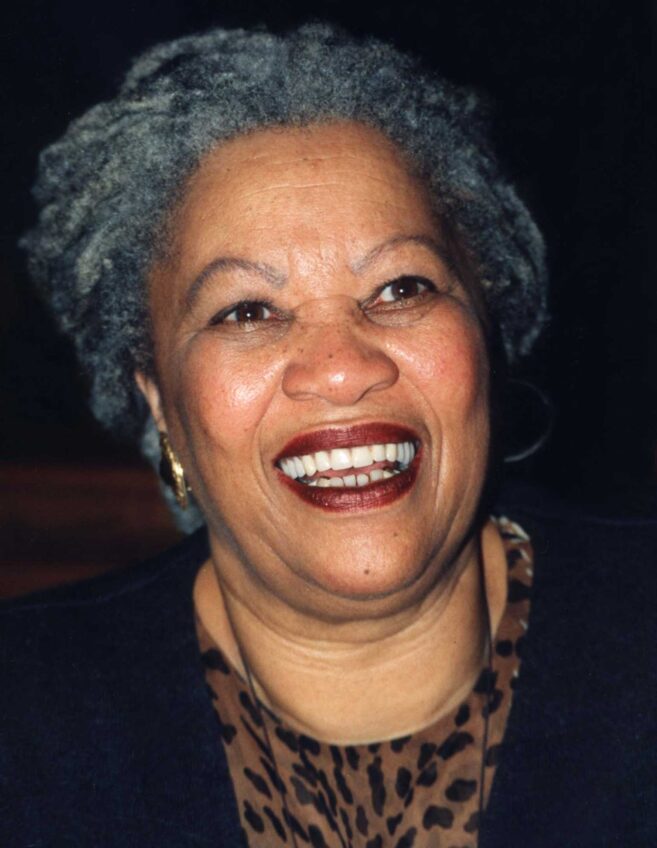There has been great excitement and renewed voter engagement since Vice President Kamala Harris rose to the top of the Democratic presidential ticket on July 21. And with good reason: Her candidacy not only injected a much-needed dose of optimism into the race; it also revived the possibility that voters will choose a new leader who is forward-looking, capable, and driven by the needs of working-class Americans.
Harris’ candidacy is seminal because it provides a chrysalis moment for America to more fully emerge from beneath the historical weight of gender and race oppression that still too often elevates dangerous and unqualified white, male leadership over more advantageous and prepared women and people of color. However, a recent report by the Center for Democracy & Technology and the Ford Institute for Human Security reveals that this progress is not without significant challenges, particularly in the digital sphere.
The report, titled “Hated More: Online Violence Targeting Women of Color Candidates in the 2024 US Election,” highlights the disproportionate online attacks faced by women of color candidates. Alarmingly, more than 1 in 5 tweets targeted at Asian-American and African American women candidates contained offensive language. Even more concerning, African American women candidates were found to be targeted with hate speech at rates up to 18 times higher than their white male counterparts.
Despite these obstacles, highly qualified Black women are poised to make leadership breakthroughs on the ballot this year. In Maryland and Delaware, U.S. Reps. Angela Alsobrooks and Lisa Blunt-Rochester are respectively poised to win their current bids for U.S. Senate. Their near-certain victories would make it the first time that Black women simultaneously serve in the chamber and add decisively to the small number of Black women (just 3 to date) who have been U.S. senators.
The number of major cities with Black women at the helm of leadership also stands to grow. In Sacramento, California, Dr. Flojuane Cofer, a first-time candidate with a strong track record in public health policy, is leading the race to be the capital city’s next mayor. Should she win, she will be the first Black woman to serve in this office. In Richmond, Virginia, Michelle Mosby, the first Black woman to lead the City Council, is vying to become the city’s second Black woman mayor.
These pending leadership breakthroughs are journeys set in motion 52 years ago by the late congresswoman Shirley Chisholm, who was the first Black woman to run for president as a major party candidate. In the six decades since Chisholm arrived on the scene, Black women have shattered multiple political leadership glass ceilings, and we’ve done so in the face of seemingly intractable racial and gender barriers.
We’ve grown our presence in the U.S. Congress from just one, Chisholm in 1968, to 31 elected Black women currently serving voters in 19 states. Our numbers have especially seen growth in the last decade, increasing from 18 to 30. While women overall are underrepresented in Congress, Black women account for 19.2% of all voting women members of Congress, but just 15.3% of the U.S. women population.
Black women have successfully organized and strategized to make significant political leadership gains in the form of Ketanji Brown Jackson’s confirmation to the Supreme Court, Harris’ vice presidency, and a steadily growing list of Black women being elected mayors of some of the country’s largest cities, including Los Angeles, Atlanta, Washington, D.C., New Orleans and Charlotte, North Carolina. Additionally, a record number of Black women are currently serving in statewide elected executive offices, including four who are serving as lieutenant governors.
However, the recent report underscores that these achievements come at a cost. The online abuse faced by women of color candidates, particularly African American women, poses a significant barrier to creating a truly inclusive democracy. It’s crucial that social media platforms, political parties, journalists, researchers and other stakeholders in the information ecosystem take concrete steps to address this issue.
Despite these challenges, the rise of Vice President Harris and other Black women in politics is not an anomaly. It is an American success story with generations of precedence. Our system of democracy is by no means perfect, but history shows it has provided a foundation for generations of marginalized people to grow in influence and contribute to moving our country closer to the ideals and principles laid out in its Constitution.
Every generation faces a test of its commitment to realizing these promises. Current efforts to reverse course on the progress of the past 60 years, coupled with the new challenges posed by online violence, constitute our test. But Black women leaders have been building and strategizing for a moment like this, and we arrive here ready and able to lead in a manner that will take America forward, never back.
As we celebrate progress, we must also acknowledge and actively combat the unique challenges women of color face in the political arena. Only by addressing these issues head-on can we ensure that our democracy truly represents and serves all Americans.
Glynda C. Carr is president and CEO of Higher Heights for America, a 501(c)(4) organization, and its connected federal political action committee, Higher Heights for America PAC.






